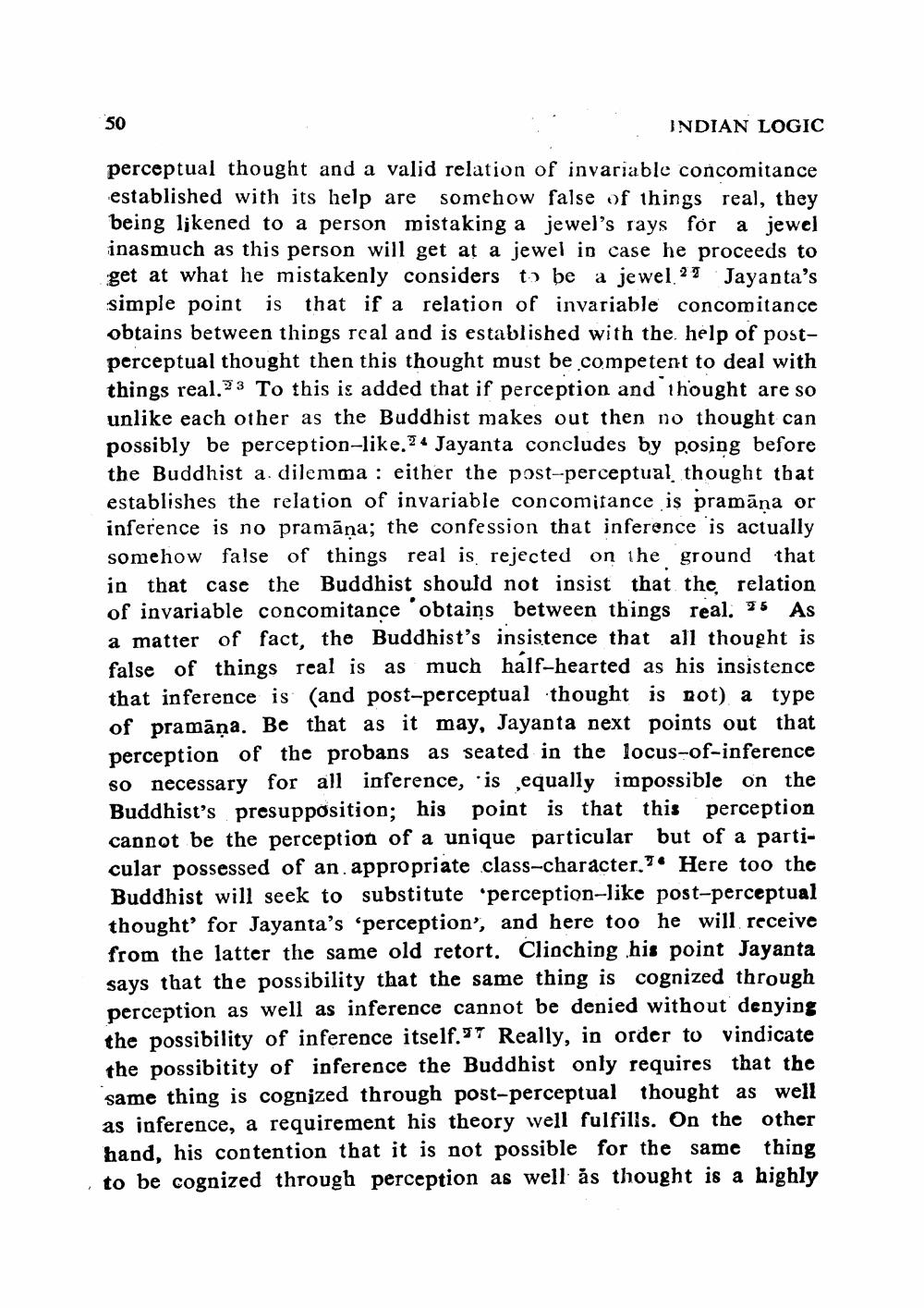________________
50
INDIAN LOGIC
perceptual thought and a valid relation of invariable concomitance established with its help are somehow false of things real, they being likened to a person mistaking a jewel's rays for a jewel inasmuch as this person will get at a jewel in case he proceeds to get at what he mistakenly considers to be a jewel. 29 Jayanta's simple point is that if a relation of invariable concomitance obtains between things real and is established with the help of postperceptual thought then this thought must be competent to deal with things real. 93 To this is added that if perception and thought are so unlike each other as the Buddhist makes out then no thought can possibly be perception-like.7 4 Jayanta concludes by posing before the Buddhist a. dilemma: either the post-perceptual thought that establishes the relation of invariable concomitance is pramāna or inference is no pramāna; the confession that inference is actually somehow false of things real is rejected on the ground that in that case the Buddhist should not insist that the relation of invariable concomitance obtains between things real. 25 As a matter of fact, the Buddhist's insistence that all thought is false of things real is as much half-hearted as his insistence that inference is (and post-perceptual thought is not) a type of pramāņa. Be that as it may, Jayanta next points out that perception of the probans as seated in the locus-of-inference so necessary for all inference, is equally impossible on the Buddhist's presupposition; his point is that this perception cannot be the perception of a unique particular but of a particular possessed of an appropriate class-character.7. Here too the Buddhist will seek to substitute 'perception-like post-perceptual thought for Jayanta's 'perception', and here too he will receive from the latter the same old retort. Clinching his point Jayanta says that the possibility that the same thing is cognized through perception as well as inference cannot be denied without denying the possibility of inference itself.57 Really, in order to vindicate the possibitity of inference the Buddhist only requires that the same thing is cognized through post-perceptual thought as well as inference, a requirement his theory well fulfills. On the other hand, his contention that it is not possible for the same thing to be cognized through perception as well as thought is a highly




